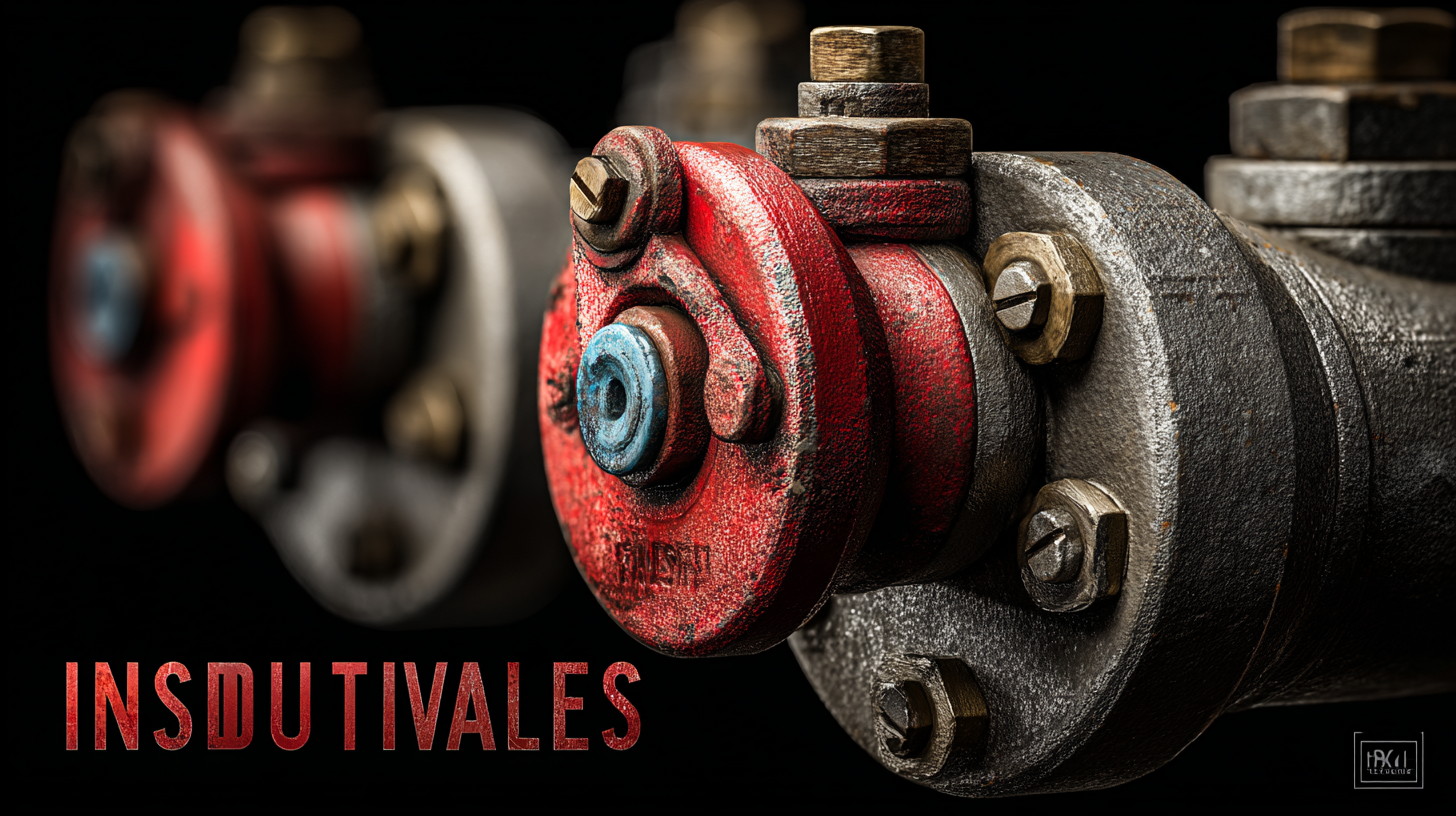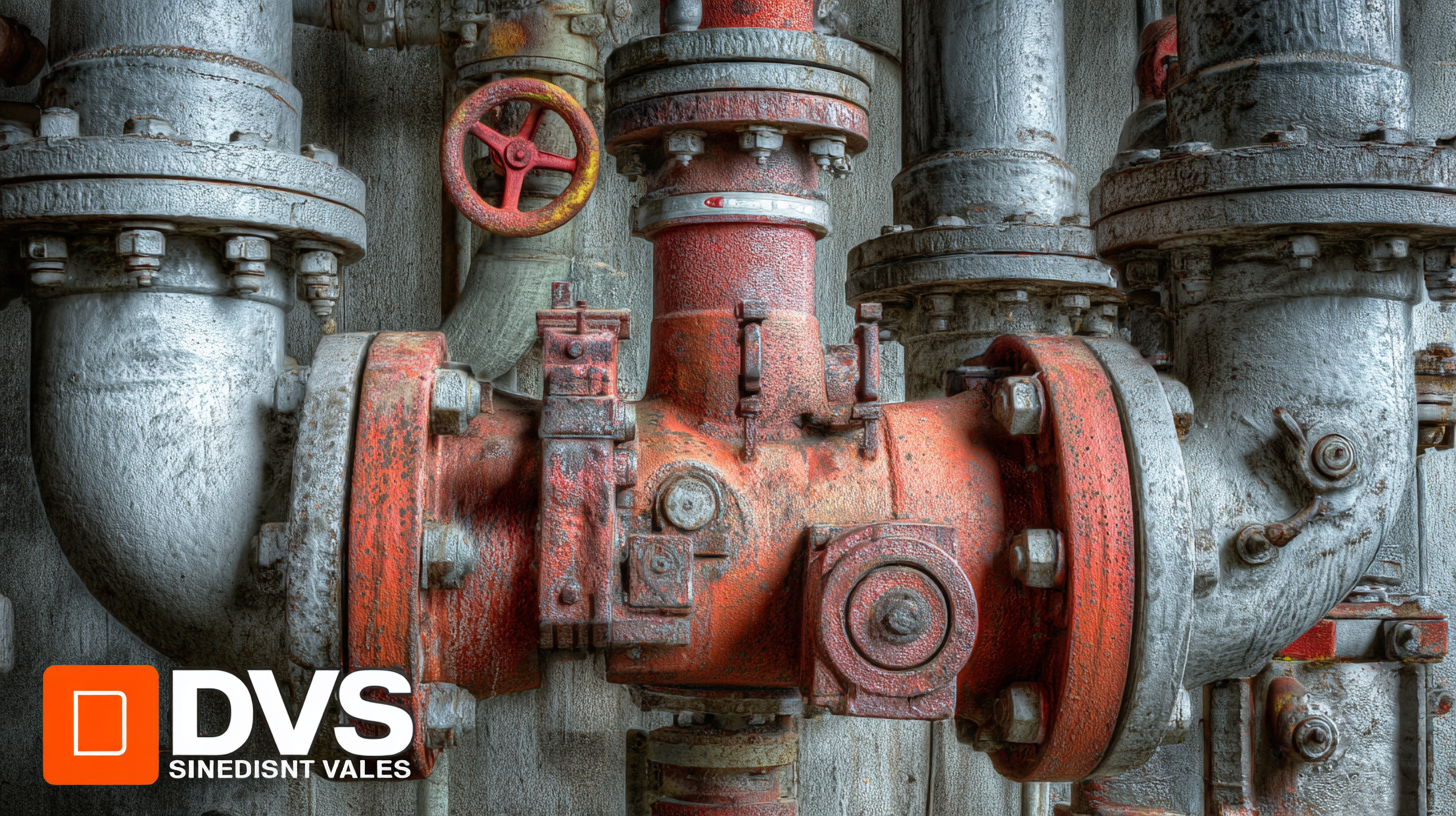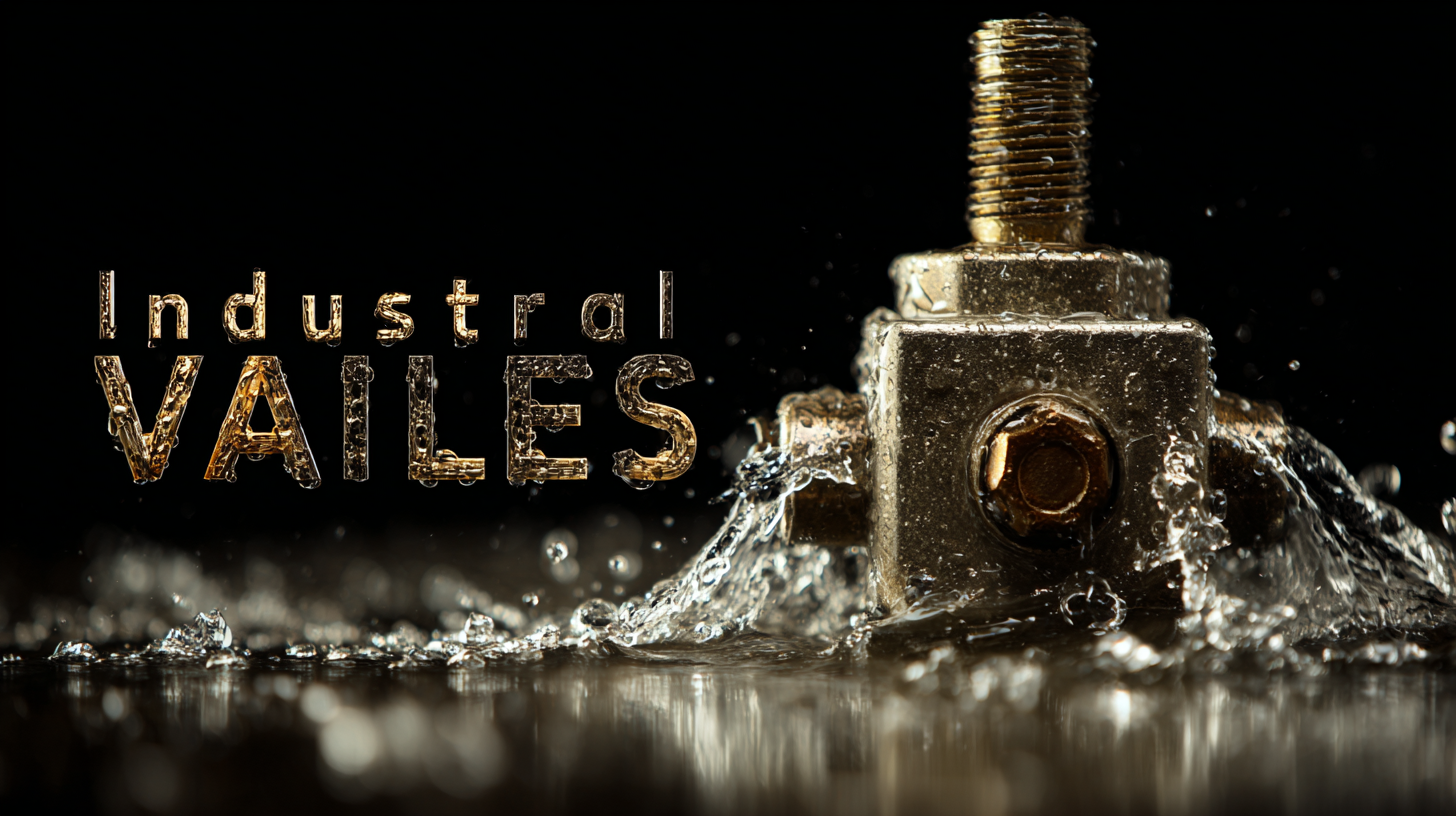-
Solutions
-
Waterworks
Pressure Reducing
Pressure Sustaining / Pressure Relief
Flow Control valves
Float Valves - Level Control
Electrically Actuated Valves
Pressure Modulation - Remote Control
Altitude Valves - Level Control
Burst Control Valves
Pump Control
CLA-VAL "HYTROL" Main Valve
Valve Controllers and Data Loggers
Air Valves
See allWaterworks
-
Military Fuelling
-
- About us
-
Blog
- Support
-
Contact
Blog
7 Amazing Features of the Best Industrial Valves You Should Know
Industrial valves play a critical role in various sectors, including oil and gas, water management, and manufacturing, with the global industrial valves market projected to reach USD 89.3 billion by 2025, according to a report by MarketsandMarkets. These essential components regulate flow, pressure, and direction of liquids and gases, ensuring operational efficiency and safety in industrial settings.

As industries increasingly prioritize automation and efficiency, the demand for advanced industrial valves has surged, making it imperative for professionals to stay informed about their features and capabilities. In this blog, we will explore seven amazing features of the best industrial valves that you should know, highlighting their significance in improving process reliability and performance across various applications. Understanding these features will not only enhance your operational strategies but also contribute to decision-making that aligns with modern industrial standards.
Key Benefits of High-Quality Industrial Valves for Efficient Operations
High-quality industrial valves play a crucial role in ensuring the efficiency and reliability of operations across various sectors. One of the key benefits of these valves is their enhanced durability. Constructed from robust materials, they are designed to withstand extreme pressure and temperature conditions, which significantly reduces maintenance costs and downtime. This durability not only increases the lifespan of the valves but also contributes to the overall efficiency of industrial processes, minimizing disruptions.
Another significant advantage of high-quality valves is their precise control over fluid flow. With advanced engineering and design, these valves provide accurate adjustments, ensuring optimal performance in critical applications. This precision is essential for maintaining system stability and achieving desired production rates. Furthermore, high-quality industrial valves often feature automated controls that integrate seamlessly with modern monitoring systems, allowing for real-time data analysis and improved decision-making. As a result, industries can achieve greater productivity and efficiency while reducing waste and operational costs.
7 Amazing Features of High-Quality Industrial Valves
This chart illustrates the importance level of seven amazing features of high-quality industrial valves. Each feature is rated on a scale from 1 to 10, with higher values indicating greater importance for efficient operations.
Innovative Materials Used in Industrial Valves: Enhancing Durability and Performance
The use of innovative materials in industrial valves significantly enhances their durability and performance, making them essential components in various applications. Modern industrial valves are often crafted from advanced alloys, composite materials, and high-performance plastics designed to withstand extreme conditions. For example, valves made from duplex stainless steel offer exceptional resistance to corrosion and stress, ensuring longevity even in harsh environments like chemical processing plants.
Moreover, new coatings and surface treatments play a crucial role in improving the functionality of industrial valves. Techniques such as thermal spray coatings and anodizing not only protect components from wear and tear but also reduce friction, leading to smoother operation and greater efficiency. The integration of materials like PTFE (Polytetrafluoroethylene) further enhances sealing capabilities, providing reliable performance at high temperatures and varying pressure levels. By adopting these innovative materials and technologies, manufacturers are setting new standards for the reliability and efficiency of industrial valves, ultimately benefiting industries ranging from oil and gas to pharmaceuticals.
The Role of Automation in Modern Industrial Valves for Streamlined Processes
In the modern industrial landscape, automation has revolutionized the functionality and efficiency of industrial valves. With advanced technologies integrated into valve designs, processes have become more streamlined, reducing both manual intervention and the potential for human error. Automated valves can be controlled remotely, allowing for real-time monitoring and adjustments to be made from a centralized control room. This capability not only enhances operational safety but also improves overall system performance.
Moreover, the role of automation in industrial valves extends to predictive maintenance, which is crucial for minimizing downtime. By utilizing sensors and advanced analytics, automated valves can provide critical data on their performance and health, allowing for timely maintenance before issues escalate. This proactive approach ensures that processes run smoothly without interruptions, which is essential in industries where precision and reliability are paramount. As industries continue to evolve, the integration of automation in valve technology will undoubtedly play a key role in optimizing production efficiency and enhancing operational capabilities.

Safety Features of Industrial Valves: Protecting Your Systems and Workforce
Industrial valves play a crucial role in ensuring the safety of systems and workforce. With the ever-increasing focus on workplace safety, understanding the safety features of these valves becomes essential. Among the key features are fail-safe mechanisms that prevent leaks and over-pressurization, which can lead to hazardous conditions. Advanced designs often include automatic shut-off capabilities that effectively mitigate the risk of accidents during operation, safeguarding both personnel and infrastructure.
Moreover, the integration of modern technologies such as wearable devices in the workplace enhances real-time monitoring of valve operations, providing critical safety alerts. The growing awareness of occupational safety has led organizations to prioritize features like corrosion resistance and robust construction in their valve selection, further enhancing worker safety. It's imperative for companies to invest in high-quality industrial valves equipped with advanced safety features to create safer working environments and comply with regulations, ultimately protecting their most valuable asset—the workforce.
Cost-Effectiveness of Reliable Industrial Valves: Long-Term Savings Explained
When considering industrial valves, cost-effectiveness is an essential factor that can lead to significant long-term savings. Reliable industrial valves not only minimize the need for frequent replacements but also reduce the costs associated with downtime during maintenance. Investing in high-quality valves means fewer repairs and replacements, translating into increased production efficiency and lower operational costs over time.
Tip 1: Always evaluate the total cost of ownership (TCO) when selecting industrial valves. This includes initial purchase costs, maintenance expenses, and potential downtime. Choosing a slightly more expensive valve upfront might save you more in the long run due to its durability and reliability.

Another important aspect is energy efficiency. High-performance valves can enhance system performance and reduce energy consumption. This not only saves money on utility bills but also contributes to a more sustainable operation, aligning with modern industry standards focused on environmental responsibility.
Tip 2: Conduct regular maintenance checks and choose valves with efficient designs that promise better flow control, as this can lead to further energy savings. Staying proactive about maintenance ensures optimal functioning, extending the lifespan of your valves and maximizing your return on investment.
CLA-VAL UK Limited
Dainton House
Goods Station Road
Tunbridge Wells
Kent, TN1 2DR
© 2025 CLA-VAL UK | site map | Terms and Conditions of Sale and Warranty | Privacy policy

